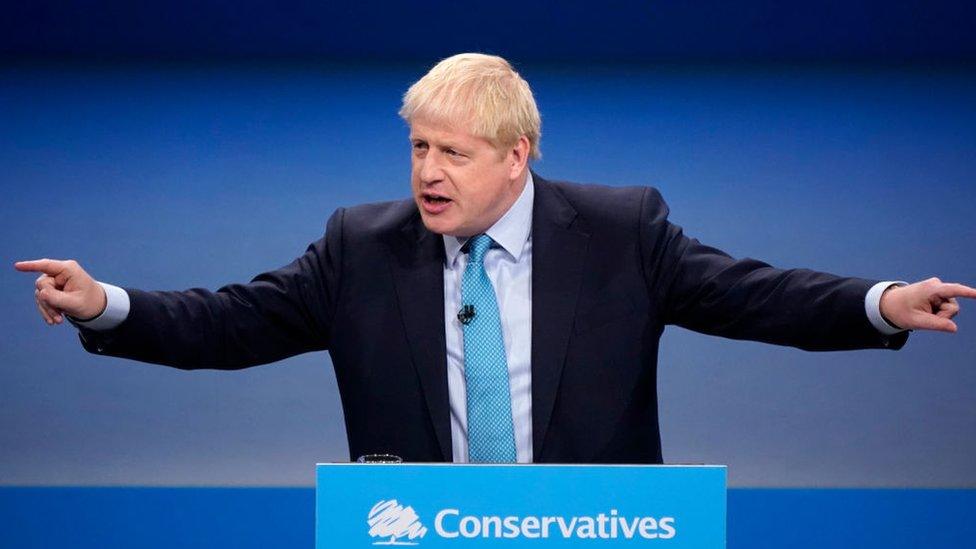Boris Johnson's Brexit plan: EU 'open but unconvinced'
- Published
- comments
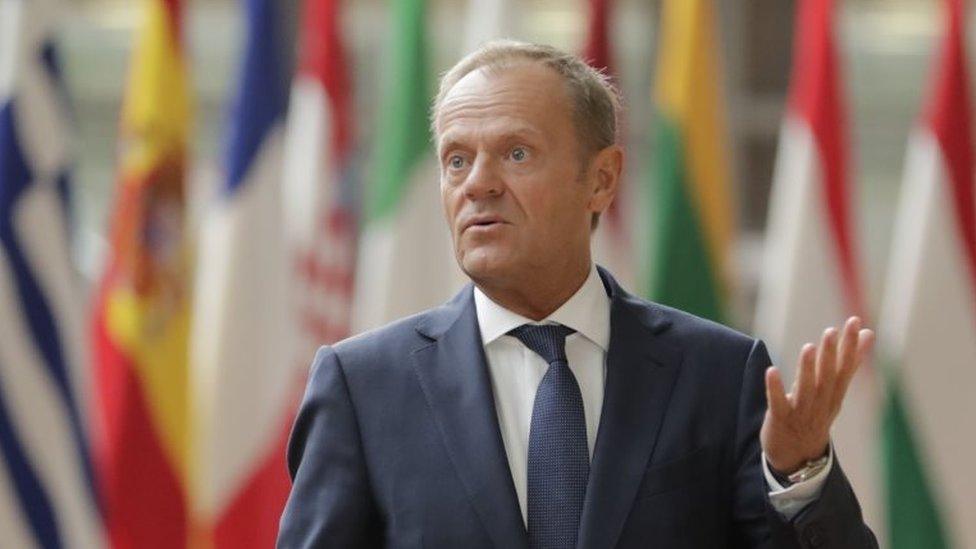
EU Council chief Donald Tusk is one of several leading EU figures to question Boris Johnson's plans
The European Union is "open but not convinced" by the UK PM's new proposals for a Brexit deal with the EU, the president of the European Council says.
Donald Tusk was among several leading EU voices to express doubt over Boris Johnson's withdrawal agreement plan.
The plan would keep Northern Ireland in the EU single market for goods but see it leave the customs union.
But what happens to the border between Northern Ireland and Ireland remains a central sticking point.
Irish PM Leo Varadkar said the new plans for the withdrawal agreement were welcome, but "fall short in a number of aspects".
It comes as UK PM Boris Johnson's Europe adviser, David Frost, is to hold another round of talks in Brussels in a bid to break the Brexit deadlock.
The EU's chief negotiator, Michel Barnier, has told European diplomats he still has plenty of questions about the British proposal to replace the backstop - the measure designed to prevent a hard border on the island of Ireland after Brexit.
He has said he will be in a better position to judge possible future negotiations with the UK once he has spoken to Mr Frost.
On Thursday, Mr Johnson said he had made a "genuine attempt to bridge the chasm" with EU officials before time runs out to reach a deal for the 31 October deadline for the UK to leave the EU.
The UK government says it is aiming to reach a final agreement at an EU summit on 17 October.
EU leaders face a delicate political dance, uncertain if Mr Johnson is open for deeper negotiations or is focusing his attention on a possible election campaign, the BBC's Europe editor Katya Adler says.
Whatever happens, she adds, the EU will be reluctant to be seen slamming the door in the face of the UK.
Meanwhile, Scotland's highest civil court is to consider whether Mr Johnson could be jailed if he ignores legislation aimed at preventing no-deal.
The so-called Benn Act requires the government to ask the EU for an extension to the Brexit deadline if it fails to either pass a deal in Parliament, or get MPs to approve no-deal, by 19 October.
However, Mr Johnson has repeatedly insisted he would not ask for a delay as the law requires him to, describing the legislation as a "surrender bill".
What are the proposals?
Downing Street hopes its new plan will replace the controversial Irish backstop provision that has proved the biggest obstacle to the existing withdrawal agreement.
The backstop was meant to keep a free-flowing border on the island of Ireland but critics - including Mr Johnson - fear it could trap the UK in EU trading rules indefinitely.
Mr Johnson's latest plan seeks to address this with the following:
Northern Ireland to remain aligned with EU's single market rules for trade in animal, food and manufactured goods
Northern Ireland's legislative assembly to have the right to decide every four years if it wants to continue to apply EU legislation to traded goods
Northern Ireland to leave EU's customs union alongside rest of UK in 2021
Customs checks on goods traded between UK and EU to be "decentralised", with electronic paperwork and "small number" of physical checks away from border itself
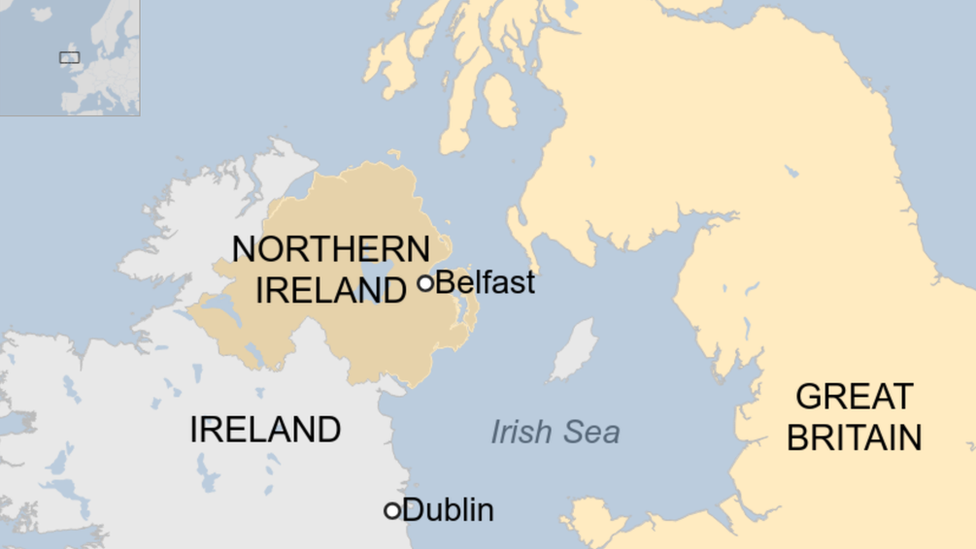
Read more: How does the border plan differ from the backstop?
The new UK proposals envisage two borders - one between Northern Ireland and Ireland, and a second between Northern Ireland and the rest of the UK, says the BBC's Europe editor Katya Adler.
What do EU officials say about the proposals?
EU negotiators say they have already identified problems with the plans, including the continuing failure to avoid a hard border on the island of Ireland and the threat to the single market.
Donald Tusk reacted in a tweet, after speaking to Taoiseach (Irish prime minister) Leo Varadkar, who is seen as key to agreeing to a withdrawal deal.
Allow X content?
This article contains content provided by X. We ask for your permission before anything is loaded, as they may be using cookies and other technologies. You may want to read X’s cookie policy, external and privacy policy, external before accepting. To view this content choose ‘accept and continue’.
For his part, Mr Varadkar voiced concerns over the customs proposals, questioning how Northern Ireland and Ireland could operate under different customs systems without the need for physical checkpoints.
He also questioned the plan to give Northern Ireland's Assembly a veto over entering into a "regulatory zone" with the EU, without the involvement of Ireland or the EU.
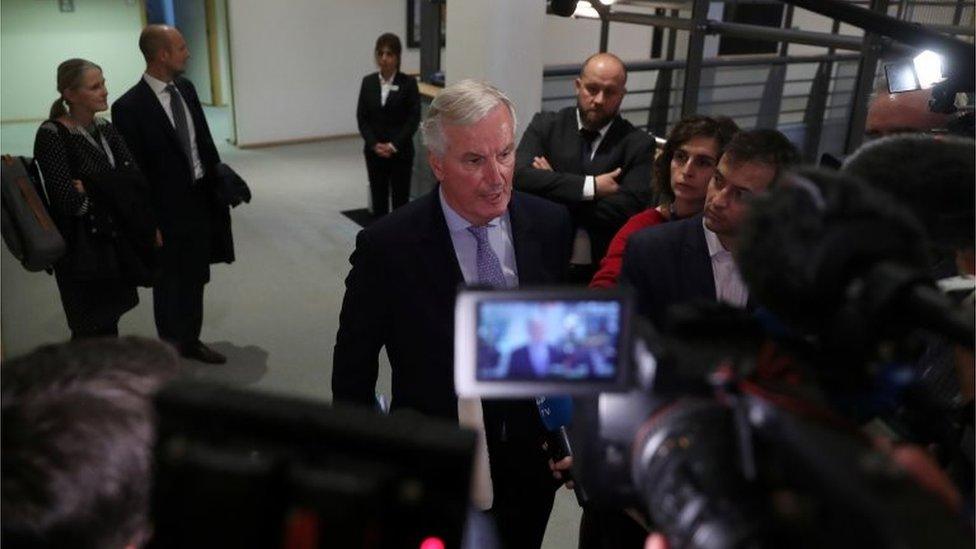
The EU's chief Brexit negotiator Michel Barnier says he wants further discussions with his UK counterpart before making a judgement on the plans
The UK has made some progress but "further work is needed", European Commission chief Jean-Claude Juncker said.
Accepting the current proposals would not meet the objectives of the backstop including preventing a hard border, he added.
Meanwhile, the European parliament's Brexit co-ordinator, Guy Verhofstadt, called the plans "unworkable".
In an interview with the BBC, Mr Verhofstadt said the plan represented "a repackaging of old ideas".
Confused by Brexit jargon? Reality Check unpacks the basics.
Earlier, the European parliament's Brexit committee said the plan didn't match "even remotely" what had already been agreed.
- Published3 October 2019
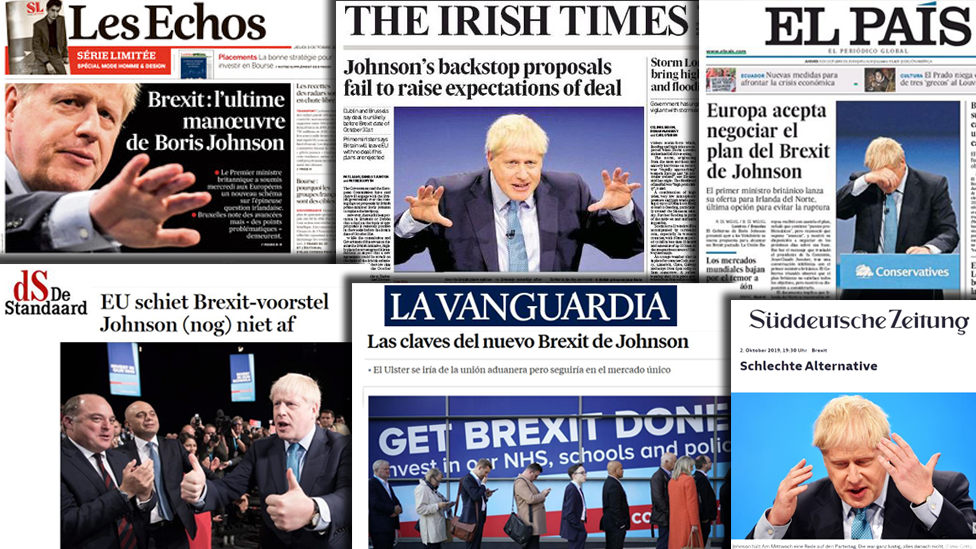
- Published2 October 2019
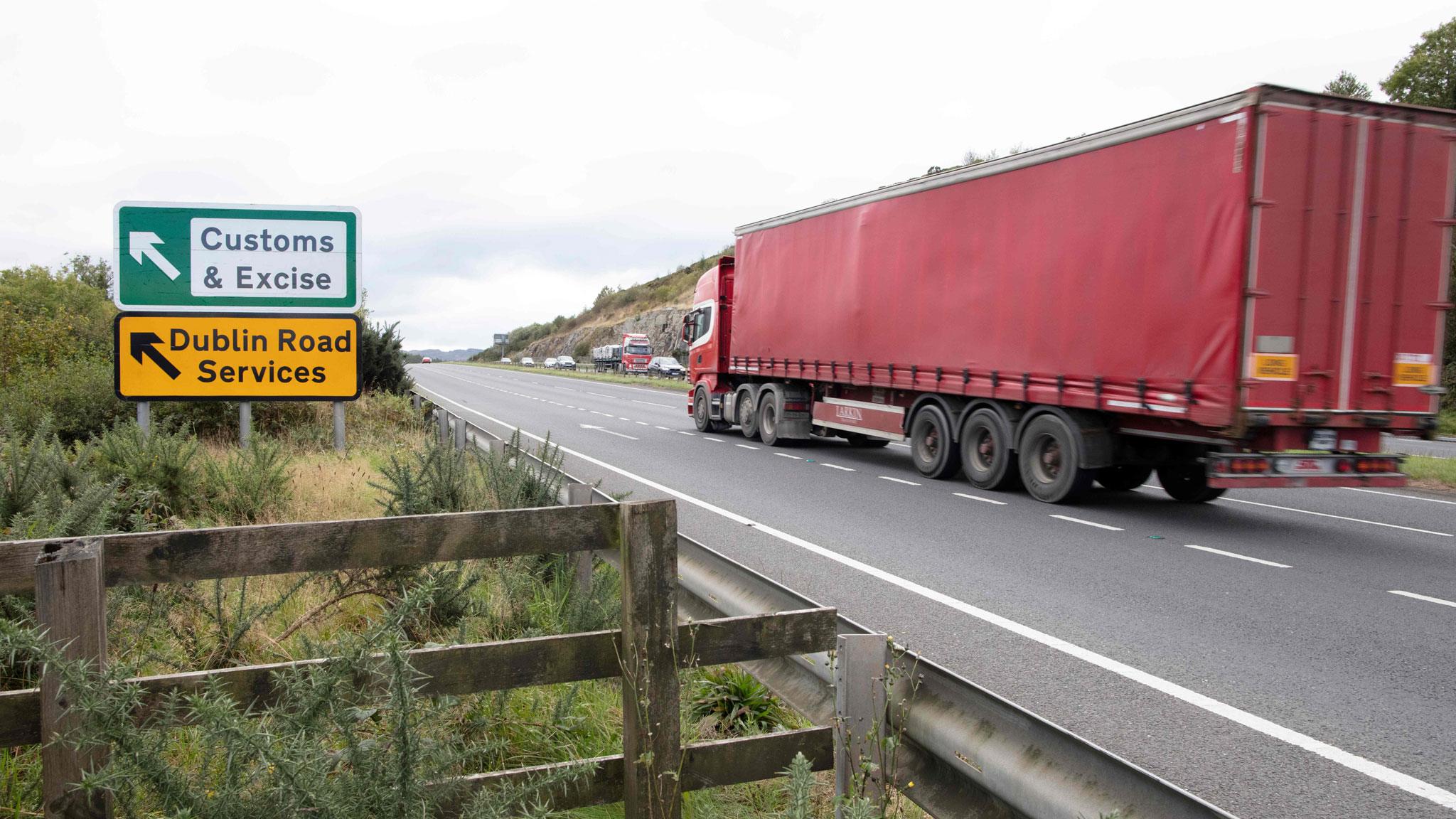
- Published2 October 2019
